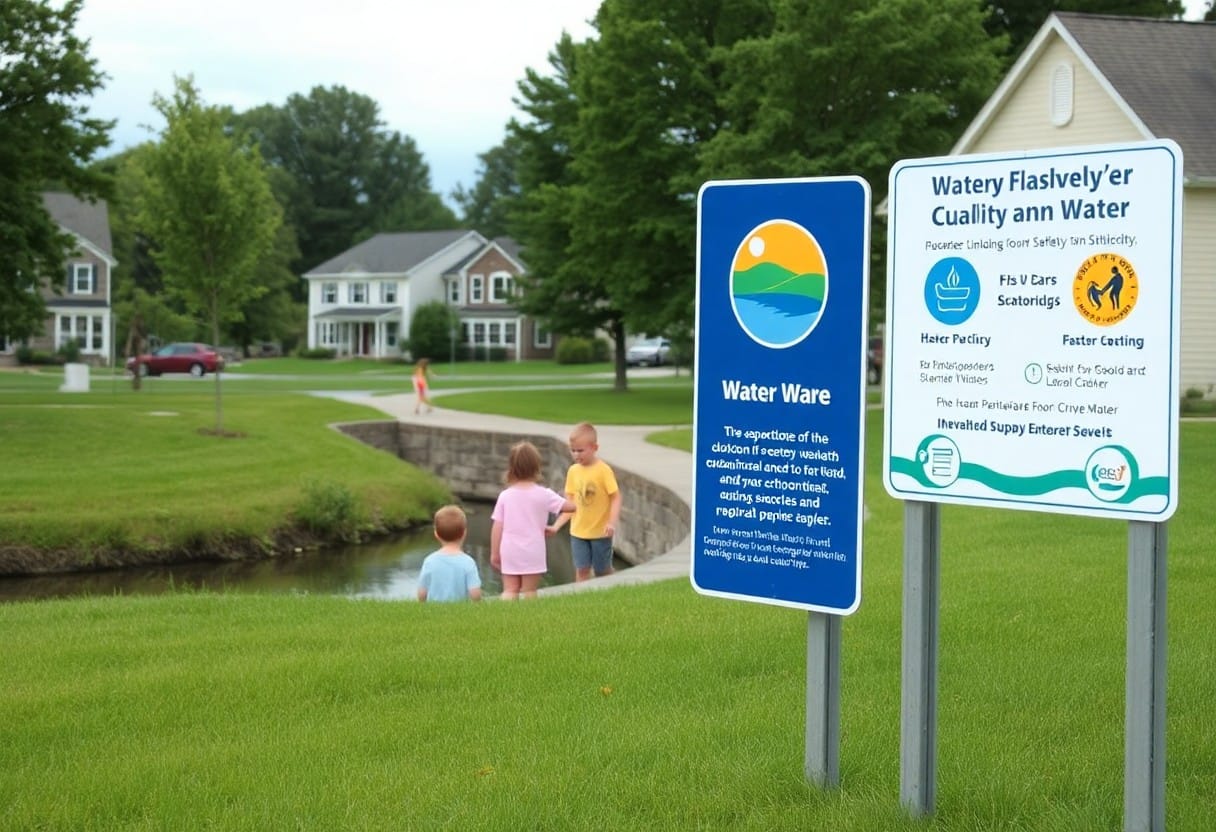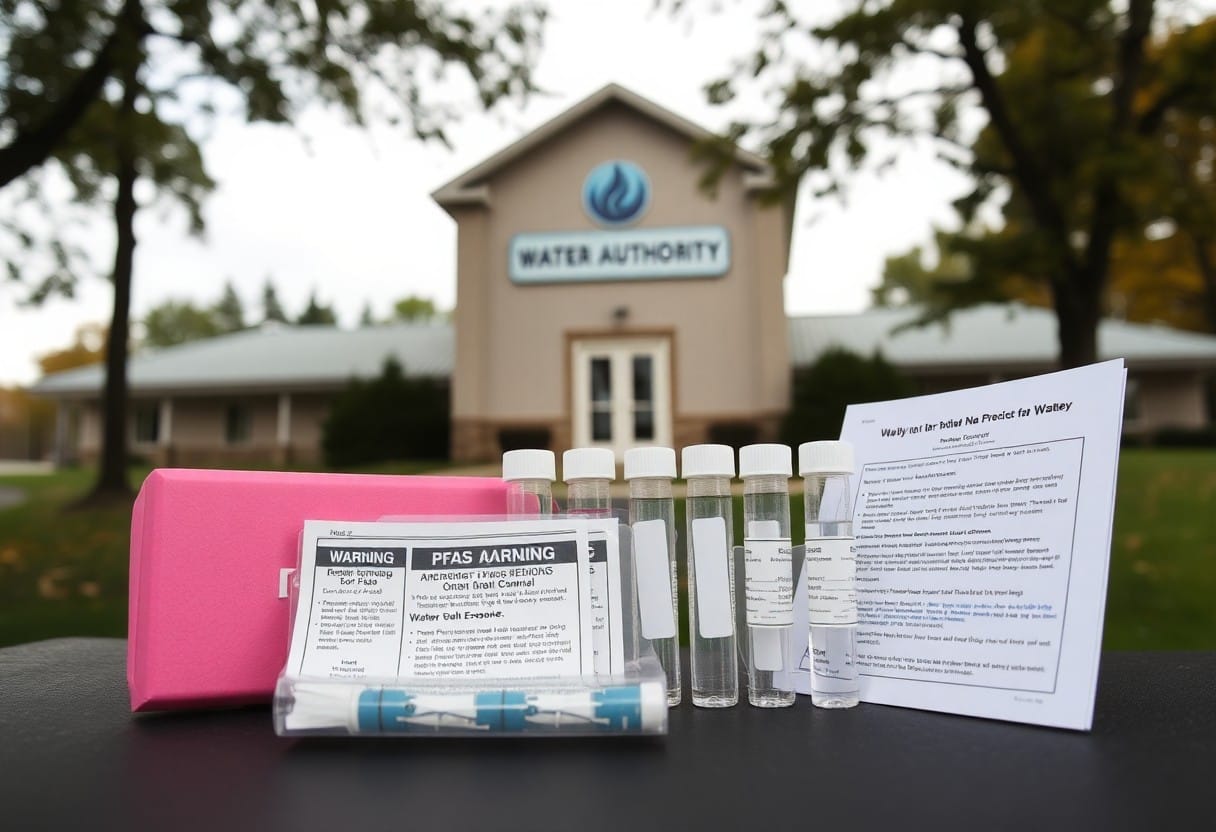Chemours has created a serious concern in Fayetteville, exposing you to toxic PFAS chemicals that have been linked to various health issues. As a resident, you might feel unease over the environmental ramifications and the lack of transparency surrounding your water supply. This blog post examines into how Chemours’ actions have left you and your community in a precarious position, aimed at equipping you with the information needed to understand the ongoing implications and advocate for your safety.
Background on PFAS
While many people are unaware, PFAS (Per- and Polyfluoroalkyl Substances) are a class of widely used chemicals that have become ubiquitous in our environment. Their unique properties, such as water and grease resistance, have led to their incorporation in various consumer products and industrial processes. However, their persistence in the environment and potential health risks have raised significant concerns among scientists, regulators, and communities alike.
Definition and Types of PFAS
The PFAS family encompasses thousands of chemicals, including:
- PFOA (Perfluorooctanoic Acid)
- PFOS (Perfluorooctanesulfonic Acid)
- GenX (Hexafluoropropylene Oxide Dimer Acid)
- PFHxS (Perfluorohexanesulfonic Acid)
- PFDA (Perfluorodecanoic Acid)
Knowing these types of PFAS can help you understand their prevalence and potential impact on your community.
History of PFAS Usage
By the 1940s, PFAS had started to become prevalent due to their effectiveness in numerous applications, particularly in non-stick cookware, clothing, and firefighting foams. Manufacturers embraced these chemicals for their ability to repel grease and water, promoting their use in consumer products. However, as awareness of their long-term environmental and health impacts emerged, regulatory scrutiny increased, leading to a shift in public perception.
It is important to note that PFAS, often referred to as “forever chemicals”, are incredibly persistent in both the environment and the human body, raising alarming concerns. Studies have linked long-term exposure to health issues such as cancer and liver damage, prompting significant public outcry. Conversely, the initial allure of PFAS was tied to their durability and versatility in various applications, which made them a staple in numerous industries. Understanding this history is vital for you, as it illuminates the complexities surrounding current regulatory measures and health advisories.

The Role of Chemours in Fayetteville
Now, you might be wondering about the implications of Chemours’ operations in Fayetteville. The company has faced scrutiny due to the alarming levels of produce grown near Chemours plant contaminated with PFAS, a class of harmful chemicals. As this situation unfolds, it is crucial to understand the broader impact on your community.
Overview of Chemours Operations
Below, you will discover that Chemours operates a manufacturing facility in Fayetteville, primarily focused on producing fluoropolymer products. While these materials are used in various applications ranging from non-stick cookware to automotive components, their production processes have raised significant concerns about environmental safety and public health.
Environmental Impact on Local Communities
Local residents have reported feeling unease about the long-term effects of Chemours’ operations. The presence of PFAS has not only tainted the local water supply but also raised questions about the safety of farming in the area.
Chemours has had a profound environmental impact on local communities, with chemical runoff contributing to water contamination that affects drinking water sources and agricultural products. Local studies indicate that residents may be exposed to harmful levels of PFAS, raising significant health concerns. Moreover, programs to monitor and address these pollutants have been slow to roll out, putting community health at risk and leaving you to question the safety of your environment and food sources. It’s vital to remain informed and proactive about these issues as they affect both your immediate and long-term well-being.
Health Implications for Fayetteville Residents
Even with growing awareness of PFAS contamination, many Fayetteville residents remain unaware of the potential health risks they face. Studies have linked these chemicals to various serious health conditions, elevating concerns about long-term exposure through drinking water, food, and household products. This chemical exposure can undermine your health and that of your loved ones.
Studies Linking PFAS to Health Issues
For years, research has connected PFAS exposure to numerous health problems, including liver damage, thyroid disease, and certain cancers. Examining these studies emphasizes the need for increased vigilance among Fayetteville residents to safeguard their well-being from the effects of these hazardous substances.
Vulnerable Populations Affected
Issues related to PFAS exposure particularly hamper specific populations, including children, pregnant women, and those with pre-existing health conditions. These individuals may experience heightened vulnerability to the hazardous effects of PFAS, which can lead to developmental concerns and adverse reproductive outcomes.
The impact of PFAS is especially pronounced among children, who may face developmental delays and chronic health issues due to their smaller body size and developing systems. Pregnant women and individuals with compromised health are also at heightened risk, as PFAS can interfere with fetal development and exacerbate existing conditions. It’s necessary for you to understand how these chemicals may disproportionately affect you and your family, driving the need for community action and personal vigilance regarding contamination in your environment.
Regulatory Response and Challenges
Many residents of Fayetteville have witnessed the complexities surrounding the regulatory response to PFAS contamination. Agencies are often hindered by outdated policies, inadequate funding, and the fast-evolving understanding of these toxic substances. These challenges create a frustrating environment where timely action seems elusive, leaving you to wonder how quickly real safeguards can be put in place to protect your health and environment.
Existing Regulations on PFAS
Along with the growing awareness of PFAS risks, existing regulations are lagging behind the science. Various federal and state guidelines address PFAS, but they often lack the stringent measures needed to control these harmful substances effectively. Unfortunately, this leaves your community vulnerable to health hazards associated with these pollutants.
Efforts by Local and State Authorities
By actively engaging with communities, state and local authorities have taken steps to address PFAS exposure in Fayetteville. They have initiated assessments and implemented monitoring programs to identify contaminated sites, helping to protect your drinking water and health.
Indeed, local and state authorities have made significant strides in addressing the PFAS issue in Fayetteville. Authorities have mobilized resources to conduct investigations of water quality and increase public awareness about PFAS risks. They’ve also begun to collaborate with Chemours to mitigate contamination and implement more effective regulations. However, the urgency of the situation demands that you stay informed and advocate for stronger policies to ensure your community is no longer left vulnerable to these persistent chemicals.
Community Actions and Advocacy
Despite the alarming presence of PFAS in Fayetteville, residents have not sat idly. Your community has mobilized through various actions, advocating for health and environmental safety. Grassroots initiatives have emerged, empowering individuals to demand accountability from Chemours and to press for stronger regulations regarding toxic substances.
Grassroots Movements in Fayetteville
Fayetteville has seen a surge of grassroots movements that have united residents around a common goal: to confront the pollution challenging their health and environment. Activists have organized rallies, town hall meetings, and educational events, allowing you and your neighbors to voice concerns and educate each other about the effects of PFAS contamination.
Collaborations with Environmental Groups
To amplify their efforts against PFAS pollution, residents have forged partnerships with environmental groups that bring expertise and resources to the fight. These collaborations have equipped you with important tools to press for change and seek justice for the environmental harm inflicted on your community.
Consequently, these environmental collaborations have increased awareness about PFAS issues in Fayetteville and have enabled residents like you to participate in significant campaigns. They provide access to legal support and expert guidance, helping you navigate the complexities of environmental policies. Notably, these alliances have helped highlight the urgent need for remediation and has advocated for health screenings for affected residents. They also stress the importance of holding Chemours accountable, reminding you of the necessity for regulatory changes to safeguard the community’s future.
Future Outlook and Remediation Efforts
For residents of Fayetteville, the future hinges on effective remediation efforts post-Chemours contamination. While the Cape Fear River PFAS Litigation seeks justice, you must remain vigilant in supporting initiatives focused on cleaning up contaminated sites and ensuring the safety of your drinking water.
Potential Solutions for Contaminated Sites
An array of solutions exists for addressing contaminated sites, including advanced filtration systems, soil remediation techniques, and public health monitoring. You should advocate for communities to implement these methods, ensuring that your environment is restored and health risks are minimized.
Importance of Ongoing Research
Remediation efforts are strengthened by ongoing research into PFAS‘ environmental impacts and potential solutions. Indeed, understanding how PFAS chemicals interact with different ecosystems and exploring innovative clean-up technologies are vital steps in protecting your community. By supporting research initiatives, you help shape informed policies that can effectively tackle the lingering effects of contamination.
Final Words
To wrap up, understanding the PFAS crisis and Chemours’ actions is vital for you as a Fayetteville resident. The potential health risks and environmental concerns surrounding these chemicals impact not only your community but also your family’s well-being. Staying informed about ongoing developments and advocating for transparency can empower you to protect your rights and demand accountability from corporations. Awareness and engagement are key in navigating this complex issue, ensuring that your voice contributes to a safer, healthier environment.



















